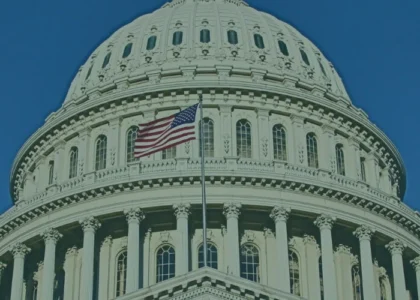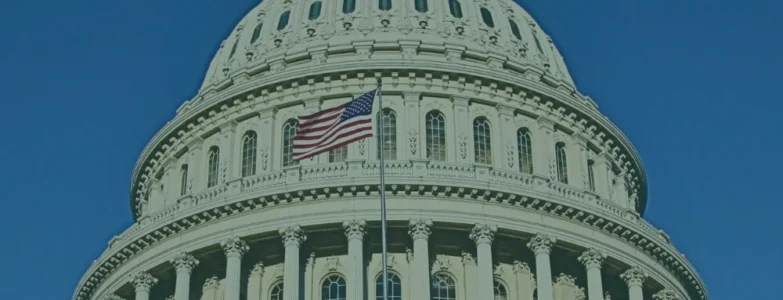
Certified public accountants (CPAs) and other tax professionals in the U.S. are sounding the alarm about the upcoming tax season–which has been greeted with skepticism about how the IRS will deal with its continuing logistical challenges, with taxpayers and their preparers likely to experience more frustration and delays.
Harlan Levinson, CPA of Beverly Hills, California about 2021 tax season, said, “This has been my worst tax season in 30 years of practice. So many hurdles have been thrown at us this year.” That statement pretty much summarizes what accountants and tax preparers dealt with in 2021, at Federal and State levels, as they tried to complete their clients’ 2020 tax returns in a timely manner.
On Jan. 24, the IRS would begin to accept and process 2021 tax returns, however, the agency have admitted that its taxpayer service has been quite unsatisfactory due to an extreme backlog of prior-year returns still to be processed. While CPAs appreciate the agency acknowledging that its performance has caused extensive delays and taxpayer bitterness, this is not enough. The IRS must do more, said Barry Melancon, CPA, CGMA, president and CEO of the AICPA, in a statement:
“Treasury officials acknowledged that the upcoming 2021 tax filing season will be ‘frustrating’ for Americans but stopped short of providing any measures they intend to implement to mitigate the expected challenges,” Mr. Melancon said.
According to Mr. Melancon, during the past 18+ months, the AICPA has repeatedly urged the IRS, Treasury, and Congress to provide greater tax penalty relief in light of the COVID-19 pandemic and resulting taxpayer hardships. These recommendations “would meaningfully reduce persistent, unnecessary, and erroneous notifications and help American taxpayers.” Rather than merely “state the obvious,” Mr. Melancon said, the IRS should also:
- Halt its compliance actions, such as liens and levies, until it can devote sufficient resources for a timely resolution of the matter;
- Timely align taxpayers’ requests for account holds with the time it takes the Service to process any penalty abatement requests;
- Provide taxpayers with a simplified abatement process; and
- Provide taxpayers with targeted relief from underpayment and late-payment tax penalties for the 2020 and 2021 tax years.
These are “all actions the IRS can take right now,” Mr. Melancon said.
CPA Community United
“This tax season has the potential to be even worse than the previous two because the IRS is still significantly behind,” said Chris Wittich, CPA, partner with Boyum Barenscheer in Minneapolis, Minnesota. “The IRS has had a very challenging two years, but they have not handled them well, and they’re getting further behind, if you ask me. I just don’t have any optimism for tax season,” Mr. Wittich said.
The National Taxpayer Advocate Service reported the 2021 tax season as the “worst tax filing season ever for Americans,” and over 8 million tax returns (original and amended) remained unprocessed by the end of 2021. “A weary and scary situation that tax practitioners and taxpayers are bound to for the 2022 tax season,” said Nestor L. Guillén, CPA, MBA, founder and CEO of Guillen Pujol CPA, in Miami, Florida.
“Although permanent changes in tax laws continue, unfortunately, a sense of sluggishness within the IRS internal processing and response capabilities is still present. The IRS should acknowledge the unpostponable need of granting penalty relief on minor delinquencies –not doing so could create an additional burden due to the lack of compliance, which might not be properly nor timely attended by the agency,” Mr. Guillén added.
“The pandemic has created enormous challenges for the IRS that, realistically, may only get worse as the omicron variant rapidly fuels new infections,” said Edward Karl, CPA, CGMA, the AICPA’s vice president–Tax Policy & Advocacy.
“If the government continues to operate under a continuing resolution, which appears likely right now, it will create an additional layer of complications for the Service. Entering the tax filing season with a significant processing backlog and a temporary funding mechanism for taxpayer services, while managing inevitable COVID infections among IRS staff, will further overburden an already-strained agency. “Now more than ever, the IRS must take actions to ameliorate what the Service has already identified to be a difficult situation,” Mr. Karl said.
What to Do
On a recent Town Hall meeting to cover updates related to the tax profession, the American Institute of CPAs (AICPA) highlighted the numerous problems and the lack of compliance and organization at the IRS –not opening mail correspondences, or reading faxes that are sent to them, to name a few. “There are horror stories all through the tax community about the IRS sending tax notices to taxpayers, a response to the notice is sent to the IRS, and then the IRS ignores the response and escalates the notice. Sometimes, they even end up threatening to place a levy on the taxpayer’s assets before they’ve even acted on the responses that have been submitted. It is definitely becoming a big issue and Congress needs to step in,” C. Brian Streig, CPA wrote.
Contact Congress members (House and Senate)
What to do, then? In addition to contacting your tax professional, the AICPA encourages taxpayers and tax preparers in the country to please send a formal complain to your U.S. House and Senate members, and request your House Member cosponsor H.R. 5155, The Taxpayer Penalty Protection Act. Tap here to learn more about the bill.











